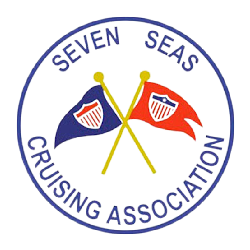Post-Storm Health Issues in Haiti
Haiti continues to harbor an environmentally persistent cholera strain originally introduced from South Asia in 2010. Unlike previous outbreaks in other regions, this strain embedded itself into Haiti’s rivers, estuaries, sediments, and coastal ecosystems. It can remain dormant for months or years, reactivating when storm damage overwhelms sanitation systems.
Cholera spreads through fecal contamination of water and food. Post-storm conditions — flooding, latrine overflow, combined drainage, and damaged water systems — are ideal for renewed transmission. Individuals departing Haiti or the Dominican Republic — including volunteers, mariners, military personnel, humanitarian staff, and displaced families — may unknowingly shed the bacterium even after symptoms resolve.
Because the Caribbean had no natural presence of cholera prior to 2010, regional islands remain highly vulnerable. Any country receiving travelers, relief cargo, or vessels from affected zones must maintain heightened awareness.

Treatment & Antibiotic Guidelines (Public Health References)
Cholera can be rapidly controlled when standard WHO-endorsed protocols are followed:
- Immediate oral rehydration, with IV fluids for severe dehydration
- Use of appropriate antibiotics per WHO and PAHO guidance to reduce disease duration and bacterial shedding
- Chlorination or treatment of community water supplies
While cholera is not truly cyst-forming, it can enter dormant states in sediments, biofilms, shellfish, small fish, and brackish water. Eliminating these reservoirs is not currently possible; prevention and sanitation are essential.
Leptospirosis: A Second Major Threat Post-Storm
Leptospirosis cases rise sharply after storms in Haiti and the Dominican Republic. Spread through water contaminated with animal urine — especially from rodents, livestock, dogs, and wildlife — this disease enters through small skin breaks or mucous membranes. Flooded streets, standing water, and damaged housing create a perfect pathway for transmission.
Symptoms such as fever, severe headache, dark urine, muscle aches, or jaundice require prompt evaluation. Ports and marinas should encourage medical assessment for anyone exposed to floodwater.
Precautions for Mariners, Ports & Relief Crews
- Treat all drinking water by boiling, filtration, or chlorination
- Avoid contact with floodwater or runoff areas
- Disinfect deck surfaces and bilge areas exposed to contaminated water
- Maintain strict food-handling and handwashing procedures aboard
- Monitor arriving travelers from Haiti/DR for gastrointestinal illness or unexplained fever
- Strengthen rodent control around docks, storage areas, and marinas
Why the Region Must Act
Haiti’s cholera strain represents the first long-term introduction of pandemic cholera into the Caribbean ecosystem. Combined with rising leptospirosis cases after storms, the region faces a unique set of biological risks.
While no major outbreaks are currently reported on nearby islands, the post-hurricane period remains the highest-risk window.
Mariners, relief crews, and port authorities are urged to maintain vigilance, reinforce sanitation, and ensure early clinical evaluation when symptoms arise. Prevention remains the most effective defense.
Our thanks to the SSCA for this Health Advisory.
………………………

About the SSCA:
SSCA, a non-profit, international organization with over 10,000 members, has been supporting liveaboard cruisers for over fifty years.
Read more here.
.……………………….
Find out all news, reports, links and comments posted on Noonsite, plus cruising information from around the world, by subscribing to our FREE monthly newsletter. Go to https://www.noonsite.com/newsletter/.
If you have found this information useful, become a paid member to enjoy unlimited use of Noonsite plus many other perks. Your membership fees really help our small, dedicated team keep country information up-to-date in support of cruisers worldwide. Find out more about Noonsite Membership levels and benefits here.

